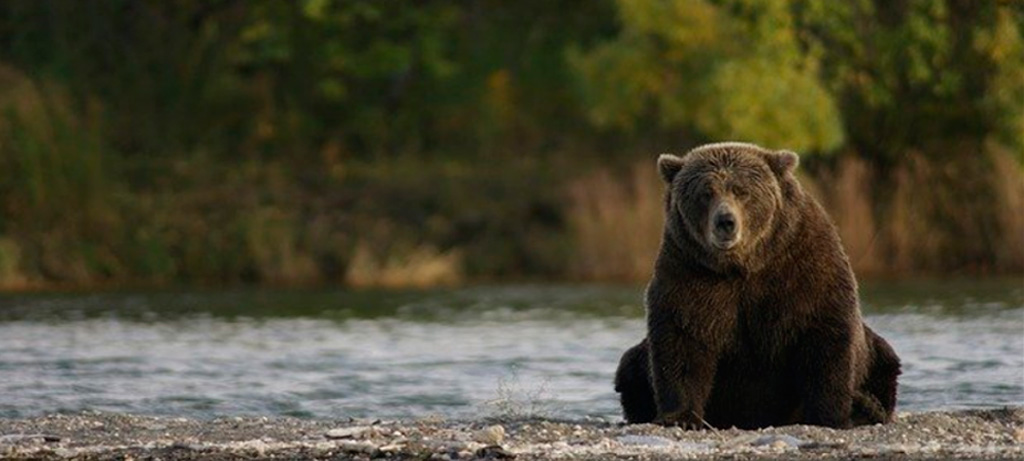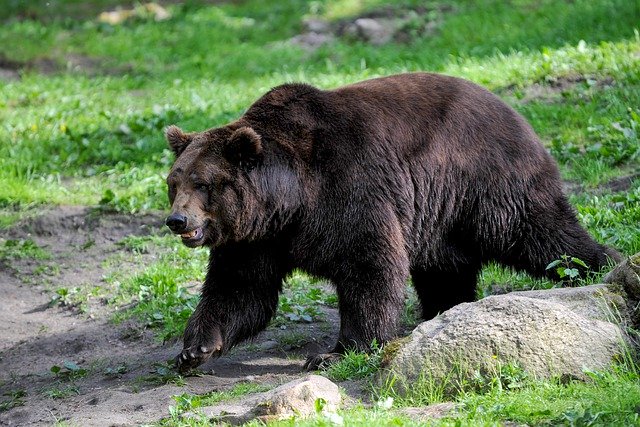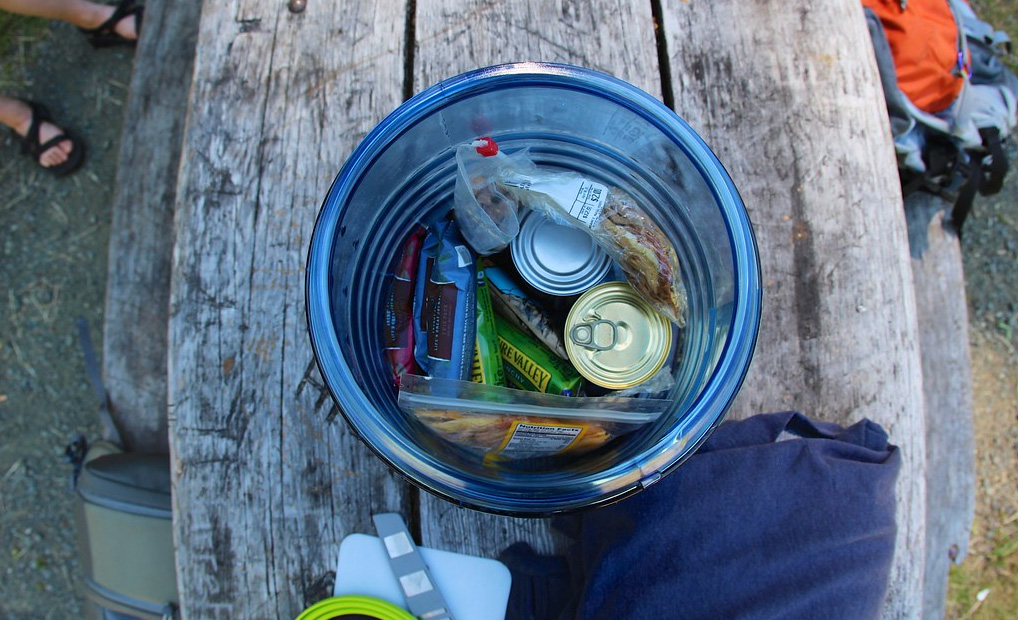Bears are smart, curious and tenacious animals that are always on the hunt for food. We’re lucky that they’re naturally afraid of us and generally leave us alone, and avoid human camps. But a hungry, curious bear gets courageous enough to try and steal our food or our trash, and we should know to store our food (and our trash) properly and minimize any possible bear encounters in the wild.
There are a lot of problems when a bear becomes so bold to steal food from campsites; the bear learns that we’re scared of him, and the bear learns that we have a lot of very tasty food.
Any bear contact should be reported to the park ranger, and they might relocate the bear to a more secluded part of the country where he won’t come in contact with humans. If a bear is aggressive or doesn’t fear humans, it will most likely be shot.
To keep the bear population healthy and to interfere with the wildlife as little as possible, you should learn how to keep your food and your trash safe.

How good are bears at stealing your food?
Bears are smart
Don’t underestimate bears’ intellect. Hang-sacks are a thing of the past, as bears are crafty enough to take them down. Remember, a bear is smarter than an average dog, and they’ve learned how to take food suspended by 2 counter balancing bags by letting their cubs climb the tree and cut the ropes.
Bears are even known to throw bear canisters off cliffs in hopes that it’ll break and that they’ll get the food inside. But today’s bear canisters are made out of especially thick and hard plastic that can take an unprecedented amount of abuse.
The bear’s sense of smell
A bear’s sense of smell is about as good as a bloodhound’s sense of smell. They can smell strong scents up to 20 miles away. Compared to them, humans can smell up to a few yards, unless the smell is extremely strong. This is why bear spray is so effective, and why you will never trick a bear’s sense of smell unless you use an air tight container.

Bears are strong and powerful
Bears have extremely big teeth, claws, and powerful jaws. They can scrape and eat through wooden chests and canisters. Most bears weigh about 300 lbs or more, and they can crush most weaker canisters. Some hikers keep their food in plastic bottles. Mice and other rodents can’t bite through a 2 liter bottle, but bears will easily puncture them and get whatever’s inside.
This is why it’s important to: 1. do everything to avoid bear encounter and 2. use a strong, bear-proof container to keep your food safe.
Bear Canister Tips
Bear Canisters are big and bulky items that hikers do not like to carry with them unless absolutely necessary, and we understand that. But mandatory gear is mandatory gear, and you shouldn’t just take your chances.

1. Stop the scent
Use zip-lock bags or odor-negating bags. Before you put the food in the canister or in your backpack, use odor-sealing bags that minimize the amount of scent your food leaves. Using a bear canister and having crumbs and trash in your backpack won’t do you any good when a curious bear comes near.
2. Keep it far away
Place the canister 100 feet from your camp. A curious bear or a curious critter will inevitably come by to check it out; it’s much safer to leave your canister somewhere and let them stop by and check it out than leaving the canister in your tent.
3. Pack it properly
The canister is a big, rigid object and should be packed in the center. It’ll help the weight distribution of your pack.
4. Flip and mark
Flip the canister upside down and mark it. Bears are smart, but they still didn’t figure out how to twist the lid off. Lower their chances by flipping the canister upside down for the night.
5. Open only when necessary
Don’t puncture food bags until you’re ready to eat them. This lets the odor out, and if you forget a bag of food in your backpack a curious animal will try its best to get it.

6. Store in a safe place
Don’t leave your canister next to a cliff edge. Bears might try to open the canister by dropping it from a height, or some other animal might accidentally roll it off a cliff.
7. Trust the product
Bear Canisters are almost 100% Bear-Proof. Since 1991, there have been less and less food-related bear incidents due to bear canister usage. Bears have also learned not to try to open them, as it wastes their time.
